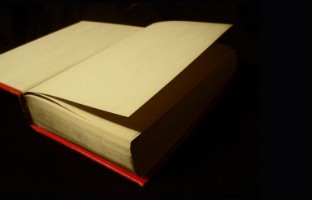Don’t know much about history
American students don't know much about their country's history, according to results of a nationwide test released last month. Most fourth graders couldn't say why Abraham Lincoln was important. Only 2 percent of high school seniors could name the social problem that the Supreme Court addressed in Brown v. Board of Education.
Some blame the poor results on the No Child Left Behind curriculum, which favors reading, math and science over history. Some say poor teachers are to blame. Others say the problem is with the test, whose multiple-choice answers include "distracters," designed to trip students up. Still others say—pointing to previous test results—that Americans have never known much about history.
Whatever their relative knowledge of history, Americans have never had more opportunity to learn about it than they do now. John Lukacs in The Future of History points to the rise of history TV channels, the proliferation of documentary films and the growth of local historical societies. Since 1960, history books have sold better than novels. The nation has an abundance of historians who write well and professional writers who are good at historical research. We live in a time, says Lukacs, "when many people know less history than their forebears may have known but when more people are interested in history than probably ever before."
The absence of historical knowledge may reflect the loss of a national story, says Lendol Calder of Augustana College in Illinois. In the first week of his survey courses Calder asks students to write a one- to two-page history of the United States without using any resources. His students think he is testing their factual knowledge, but he's really trying to find out what they think the American story is—what their framework is for interpreting the past. Over 15 years of using this exercise he's found that the number of students who think of the American past as a "glory story" has gone down—to under 20 percent in 2010. It's not been replaced by an alternative story, however: over 70 percent now see the American past as just "one damn thing after another." What will attract people to the study of history, Calder wonders, if they don't see it as an unfolding story?
People who don't know their country's history make for poor citizens. People who don't have a narrative sense of the American past are especially susceptible to politicians and other ideologues who try to weave their own versions of the past in an effort to manipulate people's emotions. Knowing something about the past entails coming to grips with complexities and learning that real people wrestled with life-and-death questions and made tragic or wise choices. Historical knowledge keeps us humble about our own choices. We need the wisdom we can get only from knowing the stories of our past.





